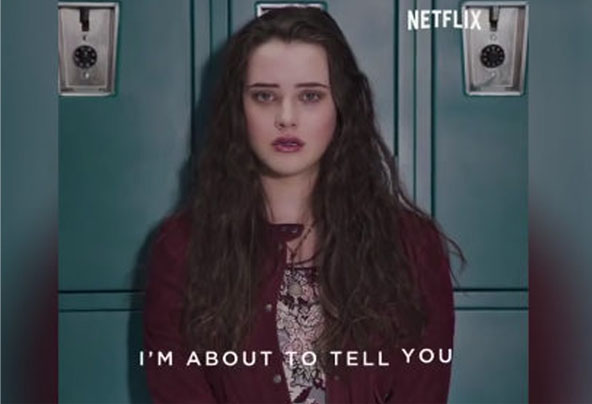If you’re the parent of a teenager, it’s likely that you’ve heard of the hit Netflix series, 13 Reasons Why. The drama-mystery is based off of the 2007 best-selling book of the same name by author, Josh Asher. It details the life and ultimate suicide of a fictional high school teenager, Hannah Baker. While the series is set in high school, experts strongly encourage parents of teens to censor this show or view it with their teens at the very least. Below is the official trailer.
Upon initially viewing the series, I imagined that it might be a useful tool for open dialogue among teen groups that I work with. The show
covers crucial topics like bullying, navigating high school relationships, and substance use. However, as it progresses, the series becomes increasingly graphic and disturbing. From rape scenes to a detailed depiction of suicide, the last few episodes led me to rule out using the show for clinical purposes.
While some therapists believe that the series may be helpful in stimulating conversation among teens, I believe that it may do more harm than good. However, we don’t live in a perfect world. Even under the tightest supervision, it is impossible to control what older children are viewing day-to-day. Censoring the show altogether is one option; however, if you know that your teen is crafty and curious, consider watching the show yourself and start having conversations about it.
Below are some things to consider while you’re determining how to address this show with your teen.
- The show glorifies suicide. While alive, Hannah Baker struggles to stand up for herself and finds herself in a number of compromising situations. However in her death, she is depicted as a bit of a vigilante, gaining revenge by using her suicide to torment and guilt trip her bullies and other individuals left behind.
- Teens will identify with the victim. Not only does Hannah experience bullying, but she also experiences typical teenage angst. Failed friendships, secrets, and identity challenges are all common issues for many teens and play a part in Hannah’s decision to kill herself. Young people will inevitably identify with her. If a youth identifies with Hannah and is in a fragile mental state, it would be more helpful to see her victorious than defeated to the point of death.
- Teens can be impulsive. With raging hormones and undeveloped decision making skills, teens can make impulsive decisions. For this reasons, when I work with teens, we focus heavily on developing their ability to consider decisions beforehand. In a moment of distress, a distraught viewer may impulsively decide to follow the inspiration of the main character.
- Some scenes induce anxiety. As an adult and a therapist with experience dealing with high risk clients, it was difficult for me to watch the graphic suicide scene in this show. The same goes for the two teen rape scenes. The images still remain in my mind. For highly sensitive teens, these types of scenes may induce anxiety and create distraction.
- The show inaccurately depicts suicide. Rather than an act of revenge, many people who have considered or attempted suicide say that it is an act of desperation and hopelessness, not an act of revenge. While it is important to stimulate conversation around this topic, people should understand it correctly first.
- Suicide is presented as a viable coping method. This goes back to judgment and decision making. Most healthy teens will realize that suicide is not a viable means of coping. However, a teen in distress with few other coping skills many emulate methods in the show as a viable means of coping.
While censoring may seem like the logical option for a show of such a sensitive nature, it is not always necessary. After all, an evening of HBO will demonstrate the same violent, impulsive, and disturbing images. In reality, the vast majority of teens will not find inspiration in watching 13 Reasons Why. Most are able to filter the negative just fine, provided that they are healthy and well-adjusted. In these cases, a candid discussion about the show will provide valuable insight for both you and your child.
On the other hand, if your teen is struggling with depression, suicide, or other mental health challenges, limiting access to shows like 13 Reasons Why is probably the best option.
If your teen is withdrawn and you’re unsure about how she’s feeling, do regular check ins about how life is going. They may seem awkward and unproductive at first, but because you know your child, these conversations will give you more data about whether or not she needs further intervention. Based off of what you sense, decide whether or not the show is appropriate.
About the Author: Kaity Rodriguez, MSW, LCSW is the founder and director of Serenity Wellness and Therapy Services, located in Montclair, NJ. The practice was founded to be a haven for anxious perfectionists, stress-out high achievers, and those who struggle with self-esteem and confidence challenges.


0 Comments